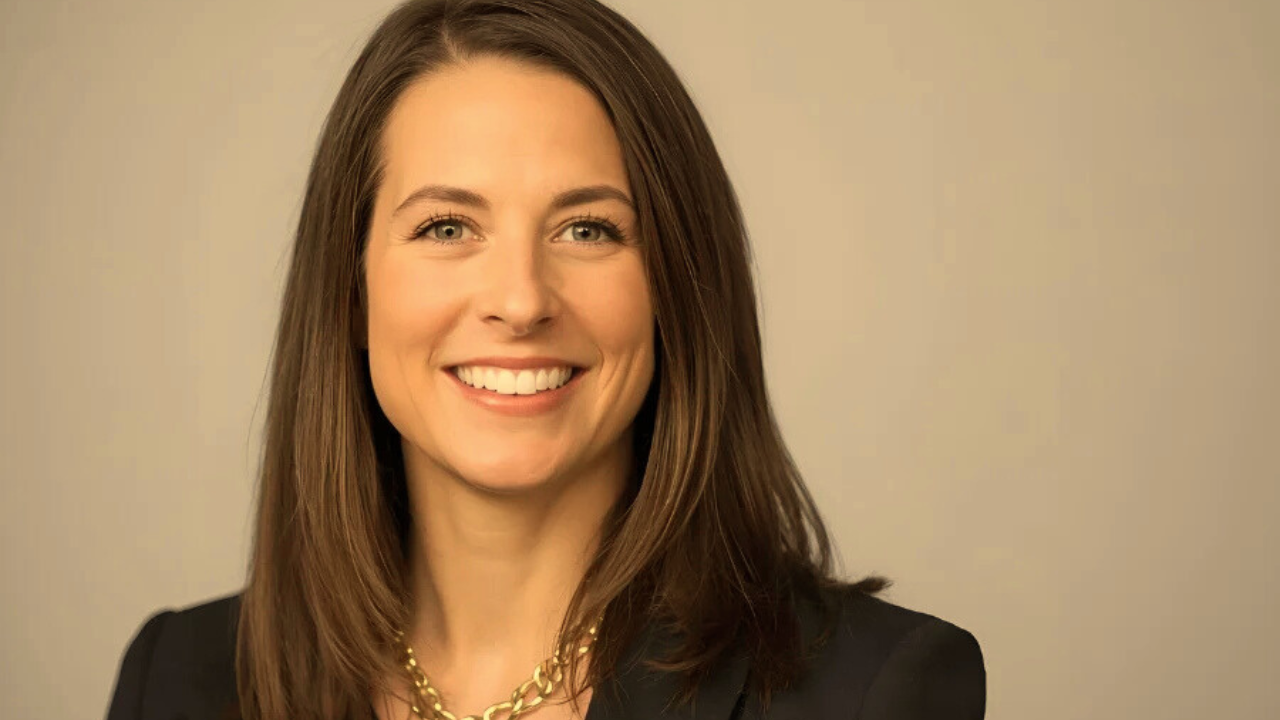Shannon Reardon Swanick has become a respected name in ethical business practices. Her work shows how integrity and profit can work together without compromise. What makes a leader choose values over shortcuts? This question drives her entire approach to investment and community work.
Her methods blend compassionate guidance with practical results. She believes that trust forms the foundation of lasting business relationships. People follow leaders who practise what they teach.
Her story offers lessons for anyone building a career with purpose. Small actions from childhood shaped her view of success. She proves that ethical choices create stronger outcomes than quick wins.
Table of Contents
Family Roots That Inspired Shannon Reardon Swanick
Shannon’s early years laid the groundwork for everything that followed. Her family showed her that success means nothing without kindness and genuine care for others.
Family influence and early lessons in kindness
Shannon’s parents taught her that kindness costs nothing but means everything. They showed love through actions, not just words. Dinner table conversations focused on helping neighbours and solving problems together.
Her father worked long hours but always made time for community events. Her mother volunteered at local shelters every weekend. These examples planted seeds of service in Shannon’s young mind.
She watched her parents treat everyone with dignity. The janitor received the same respect as the principal. This equal treatment became her blueprint for future leadership roles.
How volunteering and tutoring built lasting trust
Shannon started tutoring classmates in middle school. She noticed that patience brought better results than pressure. Students opened up when they felt safe to make mistakes.
By high school, she organised food drives and fundraising events. These projects taught her about teamwork and logistics. She learnt that people contribute more when they feel valued and heard.
One student she tutored struggled with maths for years. After six months of regular sessions, he passed with high marks. He later told Shannon that her belief in him had completely changed his self-image.
Why small acts shaped her view of true leadership
Shannon never forgot the power of simple gestures. A smile, a listening ear, or a handwritten note made real differences. She saw how small investments in people created ripples of positive change.
These early experiences taught her that leadership starts with noticing who needs help. Big titles and budgets matter less than genuine care. She carried this lesson into every job and project.
Her childhood volunteer work at animal shelters also taught resilience. Difficult situations required calm responses and creative solutions. These skills became essential in her professional life.
As Shannon says, “Leadership is about opening doors for others and walking alongside them on the path to better opportunities.”
This philosophy took root during her formative years and continues to guide her every decision today.
Education That Opened a World of Possibilities
Shannon’s academic path taught her that learning extends far beyond textbooks. She discovered how to blend analytical thinking with human connection, creating a foundation for ethical investment leadership.
Shannon Reardon Swanick’s early curiosity and love of learning
Shannon asked endless questions as a child. Why did markets rise and fall? How did communities decide priorities? Teachers encouraged her curiosity instead of limiting it.
She read biographies of business leaders and social reformers. These stories showed different paths to success. Some leaders valued profits above all, while others balanced money with meaning.
College introduced her to psychology and economics. She studied how people make decisions under pressure. This knowledge helped her understand both individual behavior and market trends.
Balancing creativity with practical business thinking
Shannon majored in business but took art and writing classes too. She believed that creativity solved problems that spreadsheets could not. Her professors praised her unique approach to case studies.
One project combined marketing research with community art installations. She proved that emotional connection drives buying decisions more than features alone. This insight shaped her later work in ethical investing.
She learned to present complex data through storytelling. Numbers alone bored audiences, but stories with data sparked action. This skill helped her communicate investment strategies to diverse groups.
How education became the base for ethical investment leadership
Her graduate studies focused on sustainable business models. She researched companies that prioritized people and planet alongside profit. These “triple bottom line“ businesses often outperformed traditional competitors over time.
Shannon wrote her thesis on values-based decision-making in financial firms. She interviewed advisers who left high-paying jobs to work with ethical investment funds. Their stories revealed a growing hunger for purpose-driven careers.
This research confirmed her belief that integrity and success belong together. She graduated with both academic knowledge and practical frameworks. Her education gave her the tools to build a different kind of investment practice.
A Career Built on Purpose and Integrity

Shannon’s professional journey proves that workplace success does not require abandoning personal values. She built her reputation by staying true to principles even when others took easier paths.
Shannon’s journey through marketing and finance roles
Shannon started in marketing at a regional firm. She created campaigns that highlighted product benefits without exaggeration. Clients appreciated her honest approach and recommended her to others.
She moved into financial services after noticing how investment advice often ignored personal values. Many advisers pushed products that earned high commissions but hurt clients long-term. This disconnect troubled her deeply.
Her first finance role involved client education workshops. She taught people how to read prospectuses and understand fee structures. Participants left feeling empowered rather than confused or intimidated.
Learning teamwork and people skills in growing industries
Shannon worked with diverse teams across multiple projects. She learned that listening carefully prevented most conflicts. When team members felt heard, they collaborated instead of competing.
One project involved merging two departments with different cultures. Shannon organized team-building sessions that focused on shared goals. Within three months, productivity increased by 30% as trust replaced tension.
She noticed that the best ideas came from unexpected sources. Junior staff often spotted problems that senior leaders missed. Shannon created systems where everyone could contribute feedback safely.
Using values-based decisions to guide community projects
Shannon volunteered with nonprofit boards while building her career. She applied business strategy to social programs. This combination produced measurable improvements in literacy rates and job placement numbers.
One community center needed better fundraising systems. Shannon introduced donor relationship management and transparent reporting. Donations increased 45% in one year because supporters trusted how their money was used.
She proved that ethical practices work in any sector. Whether selling products or serving communities, integrity builds loyalty and sustainable growth. This principle became central to her investment philosophy.
Listening, Learning, and Leading with Empathy
Shannon believes that genuine leadership begins with understanding rather than directing. Her approach demonstrates how ethical investment leadership can balance compassion and success through consistent practices.
Why listening first became her strongest leadership habit
Shannon Reardon Swanick discovered that rushed decisions often backfired. Taking time to understand all perspectives prevented costly mistakes. She scheduled regular listening sessions with team members at all levels.
During one corporate restructuring, she held individual meetings before announcing changes. Employees shared concerns that leadership had not considered. Shannon adjusted plans based on this feedback, saving the company from losing top talent.
She teaches new advisers to ask more questions than they answer in client meetings. This approach reveals what people truly need versus what they think they should want. Listening builds trust faster than any sales pitch.
How data helps her adapt ideas and measure progress
Shannon combines emotional intelligence with hard metrics. She tracks both financial returns and client satisfaction scores. This dual focus ensures that success includes both parties.
Her teams use quarterly surveys to measure adviser well-being and performance. When stress levels rise, Shannon investigates root causes immediately. Happy advisers create happy clients, which drives better long-term results.
She built dashboards that show sustainability ratings alongside traditional returns. Clients can see how their investments support clean energy or fair labor practices. Transparent data makes responsible investing principles tangible and trackable.
The importance of collaboration and shared ownership
Shannon structures projects so everyone shares credit for wins. She avoids hierarchies where only executives make decisions. Teams move faster when members own their contributions.
She launched a quarterly innovation contest where any employee could propose new services. The winning idea, a retirement planning tool for gig workers, became a major revenue stream. Shared ownership unleashes creativity that top-down management suppresses.
Cross-functional teams meet monthly to solve problems together. Marketing staff understand finance concerns, and finance teams learn about client experience challenges. This collaboration prevents the silos that slow growth.
How Can Ethical Investment Leadership Balance Compassion and Success?
Many people assume that compassion and profit cannot coexist in business. Shannon’s career proves this assumption wrong through practical examples. Ethical investment leadership succeeds by treating compassion as a strategic advantage, not a limitation.
First, compassionate leaders attract loyal clients and talented employees. People want to work with organisations that respect their values and well-being. Shannon’s firm maintains client retention rates above 90% because clients trust her guidance.
Second, values-based decision-making reduces long-term risks. Companies with strong ethics face fewer lawsuits, scandals, and regulatory problems. Shannon’s portfolios avoid businesses with poor labour practices or environmental violations, protecting clients from sudden losses.
Third, compassionate practices improve team performance. When advisers feel supported rather than pressured, they make better recommendations. Shannon eliminated sales quotas and replaced them with relationship-building goals, resulting in higher satisfaction scores across all metrics.
Fourth, sustainable returns often exceed short-term gains. Research from major universities shows that ESG-focused portfolios perform as well or better than traditional investments over ten-year periods. Shannon’s clients enjoy competitive returns while supporting positive change.
The balance requires discipline and clear boundaries. Shannon refuses clients who want guaranteed high returns through risky shortcuts. She also walks away from partnerships that conflict with her integrity in finance standards. This selectivity strengthens her reputation and attracts aligned clients.
Her approach demonstrates that compassion means accountability, not softness. She holds advisers to high standards while providing the support they need to meet them. Trust-centered management combines clear expectations with genuine care for employee success.
Programs That Created Real Change in Communities
Shannon’s community work demonstrates how ethical investment leadership extends beyond financial advice.
Mentorship Circles supporting women in ethical leadership
Shannon founded Mentorship Circles to help women navigate business facts obstacles. Groups of six meet monthly to share experiences and solve problems together. Participants report increased confidence and faster career advancement.
One circle member was afraid to negotiate her salary. The group role-played scenarios and provided research on market rates. She negotiated a 22% raise and later became a mentor herself.
The program pairs experienced leaders with emerging professionals. Unlike traditional mentoring, circles create peer support networks that last for years. Over 200 women have participated since the program started.
Digital Equity Labs is closing technology and access gaps
Shannon noticed that underserved neighbourhoods lacked basic digital skills training. She partnered with libraries to create Digital Equity Labs. These spaces offer free computer access, classes, and mentorship.
Participants learn everything from email basics to online business management. One student used her new skills to start a catering business. Within two years, she hired three employees from her own neighbourhood.
The labs serve over 500 people annually across five locations. Shannon secured funding from tech companies and local businesses. Her pitch focused on workforce development as community investment, not charity.
Civic Engagement Academy helping young voices grow confident
High school students often feel powerless in local politics. Shannon created the Civic Engagement Academy to change that perception. Students learn how government works and practice presenting ideas to officials.
One academy class researched playground safety in low-income areas. They presented findings to the city council with photo evidence and budget proposals. The city funded three playground renovations based on their recommendations.
Graduates stay involved in local advocacy after completing the program. Many attend college with scholarships earned through their civic work. Shannon’s compassionate leadership model teaches young people that their voices matter.
Turning Local Efforts into Broader Policy Impact
Local success attracts regional attention when results speak clearly.
Building partnerships with schools and local governments
Shannon approached school boards with data from her tutoring programs. She showed how mentorship improved graduation rates in specific zip codes. Boards adopted her methods as official after-school program models.
She serves on three advisory councils that shape education policy. Her practical experience gives her credibility that research alone cannot provide. Officials appreciate her solutions-focused approach over complaint-based advocacy.
One partnership created career pathways between high schools and local businesses. Students gain real work experience while companies find motivated entry-level talent. Placement rates exceed 80% for program graduates.
Helping influence fair education budgets at higher levels
Shannon testified before state legislators about education funding inequities. She brought students who shared how program cuts affected their opportunities. Personal stories moved lawmakers more than statistics alone.
Her testimony helped secure $2.3 million in additional funding for schools in underserved districts. She also lobbied for transparent budget reporting so communities could track how money was spent.
She trains other advocates to present data effectively to policymakers. Her workshops teach storytelling techniques that make complex issues understandable. Informed advocacy creates lasting policy change better than one-time protests.
Growing ideas through strong national networks
Shannon joined national organizations focused on education equity and ethical business. She shares best practices and learns from leaders in other regions. These networks amplify local success into broader movements.
She speaks at conferences about sustainable business growth through community investment. Attendees return home with frameworks they adapt to their own contexts. Her presentations always include actionable steps, not just inspiration.
One network connection led to grant funding for expanding Digital Equity Labs. The foundation’s program officer had attended Shannon’s conference presentation. Strong relationships multiply resources and opportunities.
Building Ethical Growth in Investment Leadership

Shannon Reardon Swanick applies community lessons to financial services.
Shannon Reardon Swanick’s focus on integrity in finance
Shannon built her investment practice on radical transparency. Clients receive detailed explanations of all fees and potential conflicts of interest. This honesty attracts people tired of hidden charges and confusing terms.
She refuses to sell products that benefit her more than the client. Her compensation structure aligns adviser incentives with client success. When clients earn better returns, advisers earn better compensation.
One client was pressured by another firm to invest in high-fee mutual funds. Shannon showed him lower-cost index funds with better historical performance. He saved $18,000 in fees over five years while earning higher returns.
Connecting sustainability and business success
Shannon specializes in integrity in finance through ESG (Environmental, Social, Governance) investing. She helps clients match investments with personal values. Portfolios can exclude fossil fuels, tobacco, or companies with poor labor records.
Research shows that ESG portfolios often outperform traditional ones over ten years. Companies with strong governance face fewer scandals and lawsuits. Sustainable practices reduce risk while supporting positive change.
She created simple scorecards that rate investments on environmental impact. Clients see at a glance whether holdings support renewable energy or contribute to pollution. Visual tools make responsible investing principles accessible to everyone.
Empowering advisers through a compassionate leadership model
Shannon trains advisers to view clients as partners, not transactions. She teaches active listening techniques and relationship-building skills. Advisers learn to ask about life goals before discussing financial products.
Her training program includes ethics scenarios where advisers practice difficult decisions. What happens when selling a profitable product hurts the client long-term? Shannon’s advisers learn to choose client welfare over commission checks.
One adviser struggled with quotas that pushed unsuitable products. After Shannon’s training, he restructured his practice around client needs. His client retention rate jumped to 94%, far above the industry average.
Encouraging a New Mindset for Responsible Business
Shannon believes that changing systems starts with changing minds.
Guiding advisers toward trust-centered management
Shannon replaced sales quotas with client satisfaction metrics. Advisers focus on building relationships instead of closing deals. This shift reduced pressure while improving long-term results.
She holds monthly roundtables where advisers discuss ethical dilemmas they face. The group problem-solves together, creating shared standards. Trust-centred management means advisers support each other, not compete.
One adviser admitted losing sleep over a recommended investment that later performed poorly. Shannon helped him contact the client with adjustment options. The client appreciated the proactive honesty and increased his account balance.
Promoting a corporate sustainability mindset
Shannon pushes companies to consider impacts beyond quarterly earnings. She serves on boards where she advocates for employee wellness programmes and environmental audits. Short-term thinking destroys long-term value.
She helped one firm implement a four-day workweek without cutting pay. Productivity stayed stable while employee satisfaction soared. The company attracts top talent because of its corporate sustainability mindset.
Another board she joined was debating cost-cutting measures that would eliminate community programmes. Shannon presented data showing these programmes built brand loyalty worth more than the savings. The board voted to maintain community investment.
Supporting inclusive business leadership across industries
Shannon mentors leaders from diverse backgrounds who face barriers in traditional finance. She shares contacts, reviews resumes, and practices interview responses with mentees. Her network opens doors that might otherwise stay closed.
She speaks publicly about women in ethical leadership and the unique perspectives they bring. Studies show diverse leadership teams make better decisions and generate higher returns. Inclusion improves business outcomes, not just fairness.
Shannon’s mentees now hold senior positions at investment firms, nonprofits, and government agencies. They extend the same support to others, creating a multiplier effect of inclusive business leadership across sectors.
You Might Also Like: Pedro paulo coaching Empowering Visionary Strategic Leaders
Lessons That Continue to Inspire and Shape the Next Gen

Shannon’s evolution shows that a purpose-driven strategy adapts across life stages.
Shannon Reardon Swanick’s balance of leadership and creativity
Shannon never abandoned her creative interests despite a demanding career. She takes photography classes and exhibits her work at local galleries. Art provides balance and fresh perspectives that improve her business thinking.
Photography taught her to notice details others miss. This skill helps her spot investment opportunities and organisational problems early. Creative thinking complements analytical skills, making her a more effective leader.
She encourages her team to pursue hobbies unrelated to work. People who develop multiple skills solve problems more creatively. One adviser’s woodworking hobby inspired a new client education workshop format.
Transition into photography and creative partnerships
Shannon now partners with nonprofits to document community impact through photography. Her images tell stories that statistics cannot capture. These visual narratives help organisations secure funding and support.
One photo series showed families using services at Digital Equity Labs. The images highlighted human dignity and determination, not poverty or struggle. Donors responded to the hopeful tone, increasing contributions.
She teaches photography workshops for teens in underserved areas. Students learn technical skills while documenting their own neighbourhoods. Several have sold prints to fund college expenses.
Keeping purpose and integrity at the heart of growth
Shannon Reardon Swanick proves that success does not require compromising values. Her career shows that ethical choices build stronger foundations than shortcuts. She measures wealth by positive impact, not just account balances.
She advises young professionals to define success personally before chasing external validation. What matters at the end of your career? For Shannon, the answer is that people helped and communities strengthened.
Her integrated approach offers a model for visionary financial leadership. Business serves people, not the other way around. This philosophy attracts clients and employees who share her values-based decision-making approach.
Comparison: Traditional vs. Ethical Investment Leadership
| Aspect | Traditional Approach | Shannon’s Ethical Approach |
| Client Focus | Product sales and commission targets | Long-term relationship and client welfare |
| Metrics | Quarterly earnings and transaction volume | Client satisfaction and sustainable returns |
| Decision Process | Top-down management structure | Collaborative input from all team levels |
| Investment Criteria | Maximum short-term returns | Returns are balanced with social responsibility |
| Fee Structure | Hidden costs and high management fees | Full transparency and aligned incentives |
| Team Culture | Competitive individual performance | Shared ownership and peer support |
What Shannon Reardon Swanick’s Journey Teaches Us About Leadership
Shannon Reardon Swanick demonstrates that ethical investment leadership creates better outcomes for everyone involved. Her methods prove that integrity and profit strengthen each other rather than compete.
Her work spans multiple areas but maintains one consistent thread: people matter most. Whether mentoring emerging leaders, advising clients, or serving communities, she prioritizes human dignity and potential.
The programs she built continue growing because they address real needs with practical solutions. Her trust-centred management style creates loyalty that transactional relationships never achieve.
Young professionals looking for meaningful careers can learn from her integrated approach. Success includes financial security but also creative expression, community connection, and personal growth.
Shannon’s story reminds us that small, consistent actions create larger impacts over time. Tutoring one student, speaking up in one meeting, choosing one ethical option, these moments compound into transformed systems.
Her compassionate leadership model offers hope for business practices that serve rather than exploit. As more leaders adopt these principles, the entire industry shifts toward greater accountability and purpose.
The question she started with remains relevant: What makes a leader choose values over shortcuts? Her life provides the answer: values create sustainable success that shortcuts can never deliver. This lesson applies whether you lead a company, serve a community, or manage your own career path.
FAQs
What makes Shannon Reardon Swanick’s leadership approach different from traditional investment advisers?
Shannon prioritises client welfare over sales targets. She uses transparent fee structures and refuses products that benefit advisers more than clients. Her method builds long-term relationships instead of chasing quick commissions.
How does ethical investing actually work in practice?
Ethical investing screens companies based on environmental, social, and governance standards. Clients exclude industries that conflict with their values while supporting businesses with positive practices. Research shows these portfolios often match or exceed traditional returns.
Can small businesses adopt Shannon’s sustainable business growth strategies?
Absolutely. Shannon’s principles scale to any organisation size. Start with transparent communication, employee wellness programmes, and community partnerships. Small, consistent actions build a corporate sustainability mindset over time.
What is trust-centred management, and how does it improve results?
Trust-centred management replaces surveillance and quotas with collaboration and shared goals. Employees feel empowered to make decisions and take ownership. This approach increases retention, creativity, and productivity across teams.
How can someone start a career in ethical investment leadership?
Begin by learning about ESG investing and sustainable business practices. Seek mentors who demonstrate integrity in finance. Look for firms that align compensation with client outcomes rather than sales volume. Shannon’s story shows that values-driven careers require patience but deliver lasting satisfaction.

